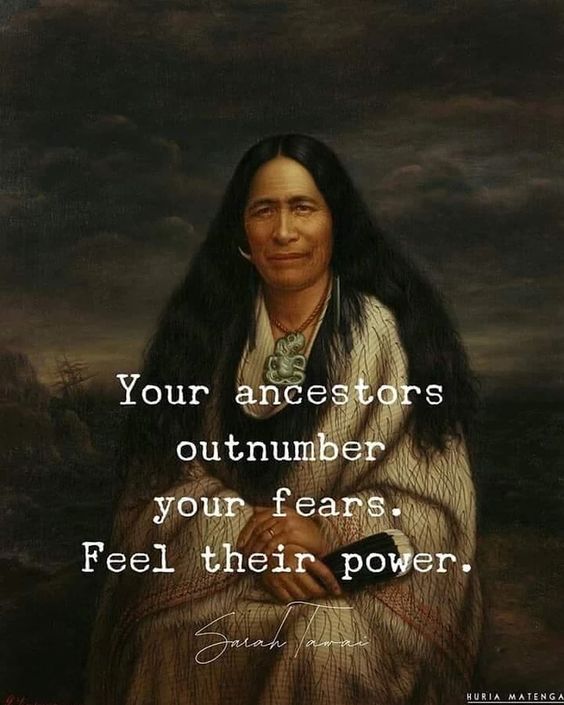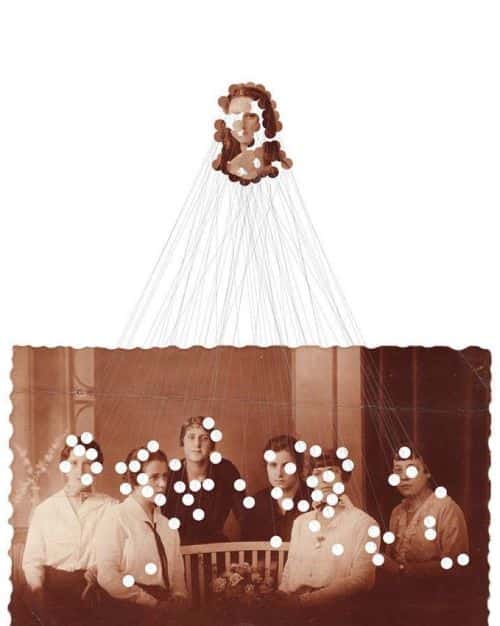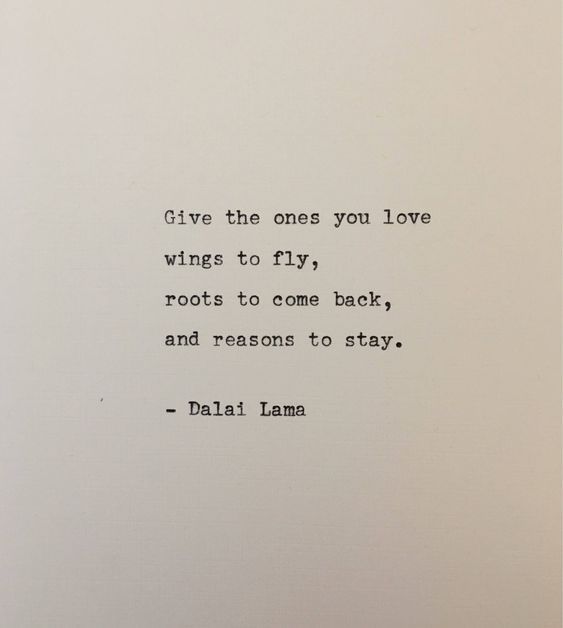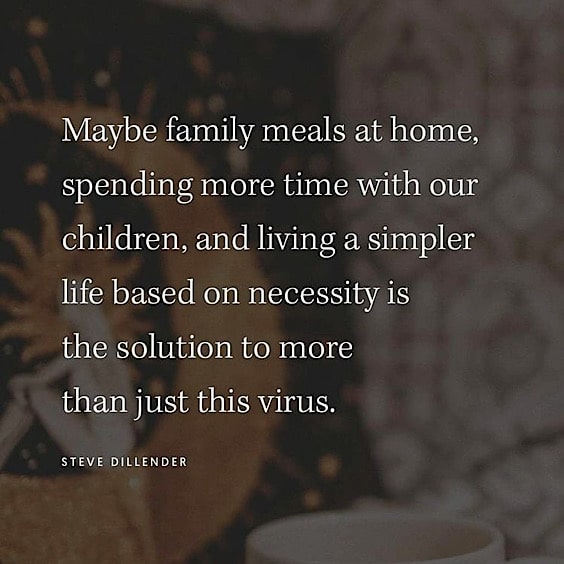“A recent wave of research shows that children who eat dinner with their families are less likely to drink, smoke, do drugs, get pregnant, commit suicide, and develop eating disorders. Additional research found that children who enjoy family meals have larger vocabularies, better manners, healthier diets, and higher self-esteem.”
Bruce Feiler, The Secrets of Happy Families
A Picture Of Happiness [Short Story]
Excerpt: The great Turkish poet, Nazim Hikmat, once asked his friend, Abidin Dino to draw a picture of happiness. The result might surprise you…
Read More »A Picture Of Happiness [Short Story]
“The fact is, there is no foundation, no secure ground, upon which people may stand today if it isn’t the family. It’s become quite clear to me as I’ve been sick. If you don’t have the support and love and caring and concern that you get from a family, you don’t have much at all. Love is so supremely important. As our great poet Auden said, ‘Love each other or perish.'”
Morrie Schwartz, via Tuesdays With Morrie (Page 91)
A Short Story About A Mom Who Had Enough—A Lesson For “No-Longer-Dependents”
Except: A short story about a mom who had enough. She was tired, irritable, and sick. And her family kept using her as a crutch. Here’s what she did.
Read More »A Short Story About A Mom Who Had Enough—A Lesson For “No-Longer-Dependents”
“Our family has become the definition of a successful blend. When you love someone, you love their journey—and that path leads you to the family dynamic you were meant to inherit and devote yourself to. Through my own childhood experience, I know how often we’re taught what a family should look like. And if your family doesn’t look like what we’ve been shown, we somehow feel incomplete. But really, families come in all versions, shapes, and sizes, and should be celebrated as part of our collective experience. That is what life has taught me.”
Alicia Keys, More Myself (Page 205)
“the thing about having
an alcoholic parent
is an alcoholic parent
does not exist
simply
an alcoholic
who could not stay sober
long enough to raise their kids”
Rupi Kaur, Milk and Honey (Page 39)
Jon Gordon Quote on Tough Love and How Love Should Come First
“I believe in tough love. But for tough love to work, love must come first. We must love tough to bring out the best in those who lead.”
Jon Gordon
Beyond the Quote (106/365)
At what point does “tough love” go from being “love that’s tough” to just being hurtful, mean, and even abusive behavior? It’s an important distinction to make because there is certainly a line between being tough out of love and being tough because of harbored inner hate—or lack of control.
In my estimation, I think Jon has it right in the quote above. In order for tough love to work, love must come first. The intention behind the action has to be mindfully channeled through love and has to be conscious and deliberate. When tough actions are taken without the mind, they are usually emotionally charged, disproportionately harsh, and later regretted. Then, after it’s all said and done, those actions are guised behind “tough love” and proper responsibility isn’t always taken.
Read More »Jon Gordon Quote on Tough Love and How Love Should Come FirstFamily First, Work Second. The Power of Family Values in Business [Excerpt]
Excerpt: This is a story of a company who prioritized family first, work second into their business model. It’s an excerpt from the book, Do Nothing! Enjoy.
Read More »Family First, Work Second. The Power of Family Values in Business [Excerpt]
“A starting point for wisdom at any age might be to accept that you’re going to die—really accept it—and to feel more contented by the limits, not less. Modern medicine encourages us to consider death a test we can win or lose, something presided over by experts in white coats. But the elders offered a wiser perspective. None of us will get out of here alive, so we might as well live while we can.” ~ John Leland, Happiness is a Choice You Make (Page 45)
“If you want close, supportive relationships with friends and family members when you’re eighty-five, trace a series of moves leading up to that, all the way back to the present time. Pleasant, right? That’s the universe telling you to spend more time with people you care about. If you want a life of purpose, don’t you think you’d better start finding your purpose now? You may not get there by working more hours, coming home late, putting off time with your friends and family. Maybe you want a different job, a long talk with your son, a move to a different part of the country. Maybe the answer is ending a marriage in which you’re no longer helping each other grow. I never said this was going to be easy.” ~ John Leland, Happiness is a Choice You Make (Pages 16-17)
I Don’t Want To Talk About It [Book]
Book Overview: Twenty years of experience treating men and their families has convinced psychotherapist Terrence Real that depression is a silent epidemic in men—that men hide their condition from family, friends, and themselves to avoid the stigma of depression’s “un-manliness.” Problems that we think of as typically male—difficulty with intimacy, workaholism, alcoholism, abusive behavior, and rage—are really attempts to escape depression. And these escape attempts only hurt the people men love and pass their condition on to their children. This groundbreaking book is the “pathway out of darkness” that these men and their families seek. Real reveals how men can unearth their pain, heal themselves, restore relationships, and break the legacy of abuse.
Buy from Amazon! Listen on Audible!
Not enough time to read entire books? Check out Blinkist and get the key insights from popular nonfiction books in a fraction of the time. ‘Busy’ isn’t an excuse.
Post(s) Inspired by this Book:
“Beyond a certain point in a man’s life, if he is to remain truly vital, he needs to be actively engaged in devotion to something other than his own success and happiness. The word discipline derives from the same root as the word disciple. Discipline means ‘to place oneself in the service of.’ Discipline is a form of devotion. A grown man with nothing to devote himself to is a man who is sick at heart. What a great many men in this culture choose to serve is their own reflected value, which they often believe serves the needs of their family, even while their families may be crying out for something different from them.” ~ Terrence Real, I Don’t Want To Talk About It
“The unresolved pain of previous generations operates in families like an emotional debt. We either face it or we leverage our children with it. When a man stands up to depression, the site of his battle may be inside his own head, but the struggle he wages has repercussions far beyond him. A man who transforms the internalized voice of contempt resists violence lying close to the heart of patriarchy itself. Such a man serves as a breakwall. The waves of pain that may have wreaked havoc across generations spill over him and lose their virulent force—sparing his children. The ‘difficult repentance’ such a man undertakes protects those who follow him. And his healing is a spiritual gift to those who came before. The reclaimed lost boy such a man discovers—the unearthed emotional, creative part of him—may not be merely the child of his own youth, but the lost child of his father’s youth, or even of his father’s father.” ~ Terrence Real, I Don’t Want To Talk About It
“Boys don’t hunger for fathers who will model traditional mores of masculinity. They hunger for fathers who will rescue them from it. They need fathers who have themselves emerged from the gauntlet of their own socialization with some degree of emotional intactness. Sons don’t want their father’s ‘balls’; they want their hearts. And, for many, the heart of a father is a difficult item to come by.” ~ Terrence Real, I Don’t Want To Talk About It


![A Picture Of Happiness [Short Story]](https://movemequotes.com/wp-content/uploads/2022/05/Happiness.-930x620.jpeg)



![Family First, Work Second. The Power of Family Values in Business [Excerpt]](https://movemequotes.com/wp-content/uploads/2020/04/IMG_7016-930x620.jpg)


